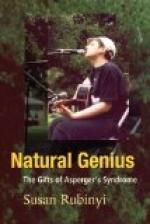Organized, but still unconscious existence takes the next station in this universal chorus. The solemn grove lifting its green top into the heavens, beside that motionless army of ancient stones, adds a sweeter note than they can give to the great harmony. It is a note, speaking not alone of the Creator’s power, but of His wisdom too. Here is life and growth. Here are adaptations and stages of progress. From the minutest germination, from the slenderest stem, from the smallest trembling leaf to the hugest trunks and the highest overshadowing branches, this vegetable organization, verdant, pale, crimson, in changeable colors, runs; stopping short only with Alpine summits or polar posts, swiftly and softly clothing again the rents and gashes in the ground made by the stroke of labor or the wheels of war—blooming into the golden and ruddy harvest on the stalk and the bough, even overpassing the salt shore, to line the dismal and unvisited caves of the deep with peculiar varieties of growth; and forth into our hands from the foaming brine delicate and strangely beautiful leaves and slight ramifications of matchless tints and proportions.
But the Psalmist summons a third order of beings to contribute its melodious share to this hallelujah; and that is the living and conscious, though irrational tribes. This sings not of power and wisdom alone, but more complex and rich in adoration, sings of goodness also. God has not made the world for a dead spectacle and mere picture for His own eye. How full and crowded with life, and happy life, His creation is! Go forth from inclosing city walls, and, in the summer noontide, stop in solitude and apparent silence and listen; and soon the sounds of this joyous life shall come to your ear: the chirp of the insects—the rustle of wings—the crackling of the leaves, as the blithesome airy creatures pass—the short, thick warble of the bird by your side, or its varied tune, clearer than viol or organ, from the thicket beyond—while, from time to time, the deep low of cattle reverberates from afar. Or if you are where the still and speechless creatures inhabit, open your eye to gaze and examine, and it shall be filled with the visible, as the ear with the vocal signs of living enjoyment. Walking at the edge of the ebbing tide, you tread on life at every step—shelly tribe on tribe of fish pressing together, while in the clear water, other tribes noiselessly swim and glide away. Every vital motion speaks of pleasure, whether in that restless current below, or in the air above, as the feathered songster passes, darting up and down his element, delight gushing from his throat at every buoyant spring—silence and sound, with double demonstration, declaring to the Creator’s praise the great and limitless boon of life.
But there is one accent more, that of love, without which the hymn is not complete; and there is another human order of Being to speak that accent. Man includes in himself all the preceding orders of Being, with all the notes of their praise: the material clod, for is he not made of dust; the plant, for he has an outward growth and circulation—the animal, for he has instinct and feeling; while reason and conscience and spiritual affection he has peculiarly and alone; so that Power, Wisdom, Goodness and Love, all concentrated in him, complete the ground of his praise.




